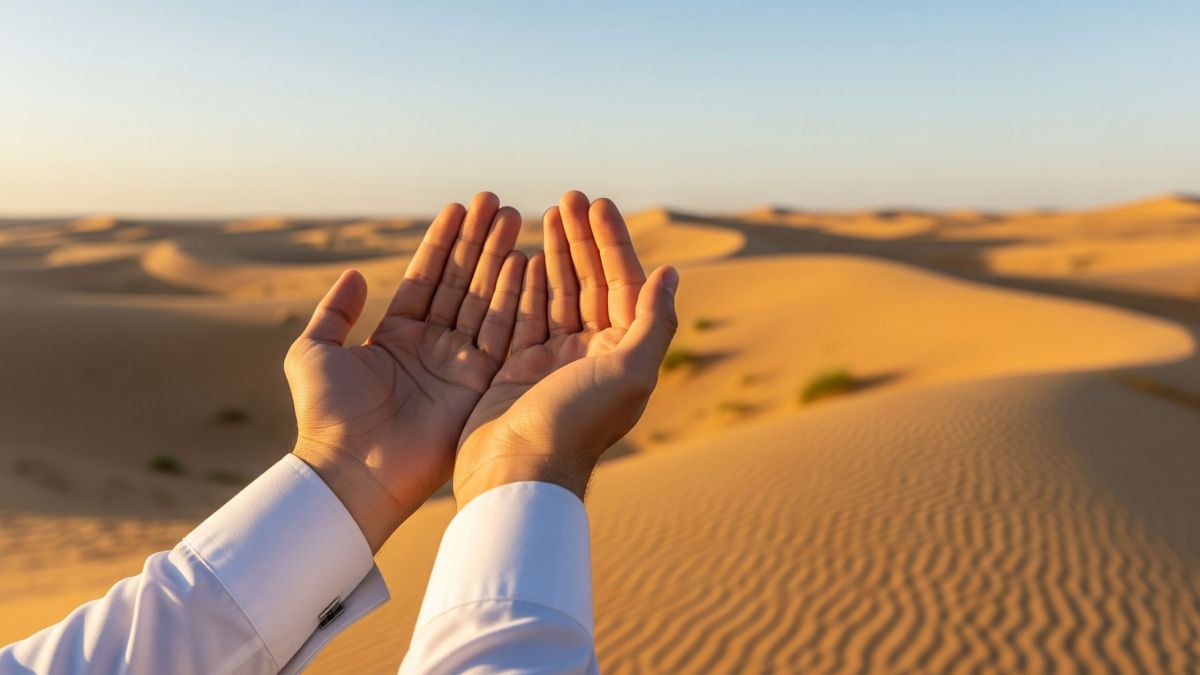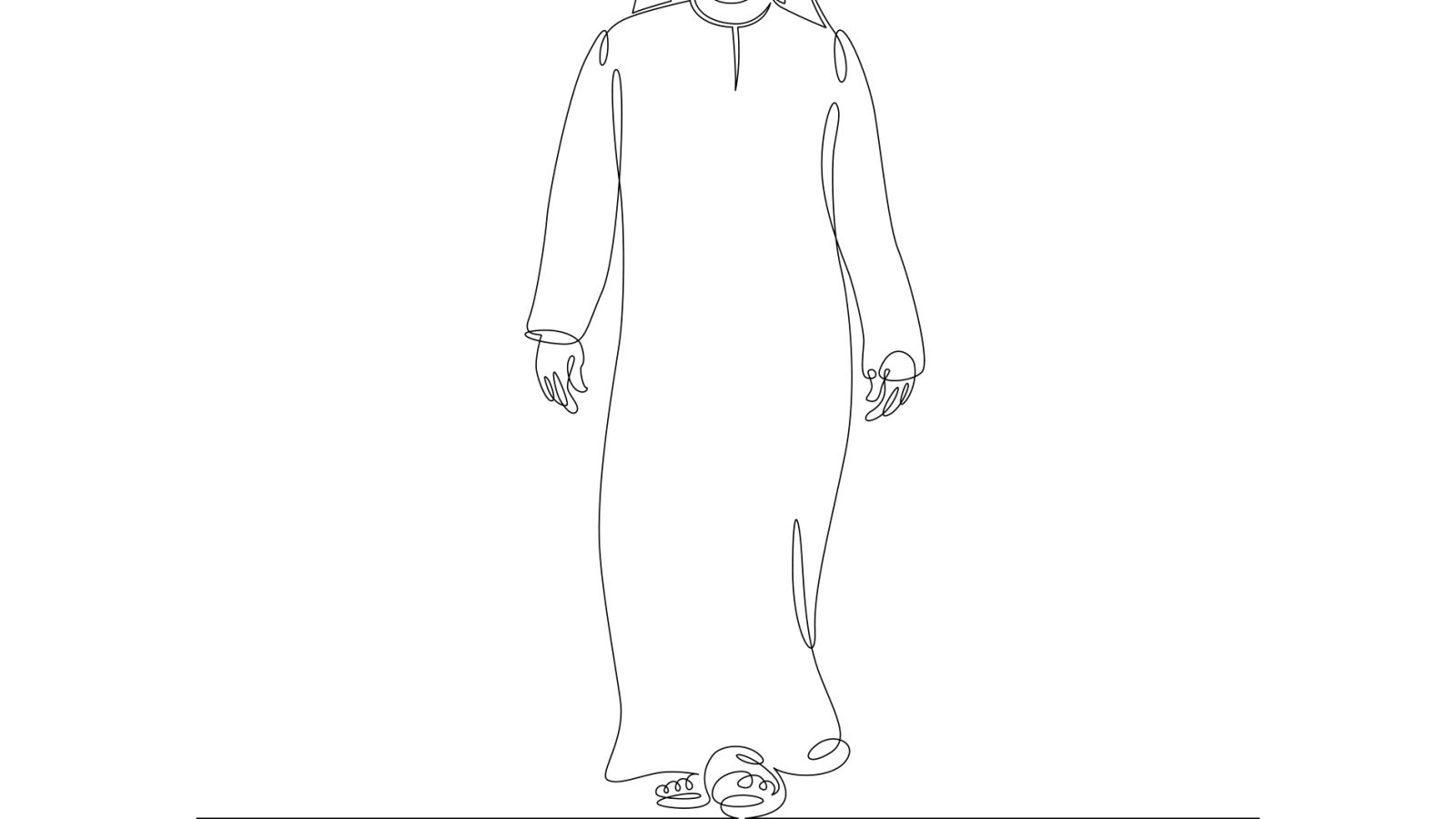The Ruling on Habitually Making Duʿāʾ After the Five Daily Prayers
Imām ʿAbd al-ʿAzīz ibn Bāz, Imām Muḥammad ibn Ṣāliḥ al-ʿUthaymīn


[Q]: What is the ruling of raising hands in duʿāʾ after praying, especially following the performance of the obligatory prayers?
Imām ʿAbd al-ʿAzīz ibn Bāz answers:
[A]: Raising hands in duʿāʾ after praying the five obligatory ṣalawāt is not mustaḥabb (recommended) because the Messenger of Allāh (صلى الله عليه وسلم) never used to do so. For it was never narrated from him (صلى الله عليه وسلم)—not after Ẓuhr, ʿAṣr, Maghrib, ʿIshāʾ or Fajr—that he ever raised his hands in duʿāʾ after praying these ṣalawāt. Therefore, it is most unbefitting for one to raise his hands (in duʿāʾ) after praying them. This is because it is an absolute obligation that we emulate him (صلى الله عليه وسلم), both the actions that we partake in and in that which we abandon. Insofar that he (صلى الله عليه وسلم) never once raised his hands in duʿāʾ after praying, then we also must refrain from doing so, all for the purpose of imitating him (صلى الله عليه وسلم).
This also applies to the duʿāʾ that is made during the ṣalāh itself. For example, we do not raise our hands when making duʿāʾ between the two sujūd, nor do we raise them when performing duʿā after the last tashahhud before concluding the prayer with the taslīm. This is all because he (صلى الله عليه وسلم) never raised his hands when performing duʿā in these positions.
This would also apply to any duʿā that is made during the khuṭbah on Friday or on ʿĪd, one should refrain from raising his hands during them simply because he (صلى الله عليه وسلم) never did so. The exception to this would be Ṣalāt al-Istisqāʾ (the prayer for rainfall) and its associated khuṭbah, or when invoking Allāh for rain as part of the Friday khuṭbah. Again, this is only because the Messenger (صلى الله عليه وسلم) used to raise his hands when invoking Allāh specifically for rain.
Besides the aforementioned, if a person desires to call upon his Lord by making duʿāʾ at the time of Ḍuḥá (from Fajr to sunrise) or after performing Tahajjud (night prayer), he may raise his hands. This is completely permissible and considered an act of goodness, as raising the hands is among the means towards an answered supplication, as evidenced from the ḥadīth: “Indeed, Allāh is shy and generous; when one of His servants raises his hands in supplication to Him, He is shy to allow those hands to drop with nothing”.1 This narration is authentic. Also, the ḥadīth of the man who supplicated while traveling, as narrated on the authority of Abū Hurayrah (رضي الله عنه) who said: The Messenger of Allāh (صلى الله عليه وسلم) said: “Then he mentioned a man that had traveled for a prolonged period, his hair dishevelled, his skin marred with grime and dust, whilst he raises his hands to the sky, saying: ‘My Lord! My Lord!’. All the while his food is ḥarām, his drink is ḥarām, and he nourishes himself with ḥarām. So the Messenger (صلى الله عليه وسلم) said: “So how can he hope to be answered?!’” This is because he used to consume ḥarām. However, the ḥadith may be used as evidence that raising one’s hands in supplication is among the means towards having that supplication answered, except that this man’s supplication went unanswered due to his food, drink, and clothing all being ḥarām—we seek Allāh’s pardon.
In summary, raising hands when making duʿāʾ is among the means towards Allāh answering that duʿāʾ. However, one must raise his hands in the circumstances when he (صلى الله عليه وسلم) raised his hands, or in any circumstance where he (صلى الله عليه وسلم) did not specifically prohibit raising them. In the latter, one may raise his hands if he wishes when supplicating. As for after the five daily obligatory prayers, it was never narrated that he (صلى الله عليه وسلم) ever raised his hands afterwards in duʿāʾ, nor did he do so after Jumuʿah prayer. In such circumstances, it is Sunnah to refrain from raising one’s hands in duʿāʾ, in order to emulate him (صلى الله عليه وسلم).2
He (رحمه الله) also said:
One should remember Allāh with the legislated remembrances that the Prophet (صلى الله عليه وسلم) used to say after praying the obligatory prayers. He may also supplicate afterwards with whatever duʿāʾ he wishes, but it should be done silently without raising his hands. This is the Sunnah.
After performing nawāfil (supererogatory prayers), I do not know of any Sunnah that specifically applies but, in some instances, one may raise his hands after its performance. As the Prophet (صلى الله عليه وسلم) used to sometimes perform the nawāfil in his house and would perform it in the masjid at others, so there is more flexibility in this matter. Although it was never narrated that he (صلى الله عليه وسلم) ever habitually raised his hands in duʿāʾ after praying nawāfil, the general encompassing principle from the aḥadīth is that raising the hands when supplicating is among the means towards having the supplication answered. This may be used to support the act of raising the hands in duʿāʾ after praying nawāfil, as long as it is only done sometimes and not habitually. There is—Allāh willing—nothing wrong with such an act.3
He (رحمه الله) also said:
Performing duʿāʾ after the obligatory ṣalāh is not disliked, rather it is recommended as long as it done silently, a person performing a supplication between himself and his Lord only. He should do so after saying the legislated adhkār (remembrances) after the ṣalāh, as this was narrated from the Prophet (صلى الله عليه وسلم). However, to supplicate instead at the end of the ṣalāh (after the last tashahhud and before the taslīm to conclude the prayer) is better. There is also nothing wrong if he supplicates after the taslīm, following the legislated remembrances, if done silently.
As for congregational duʿāʾ done with the imām or a member of the congregation, with everyone raising their hands together, this is an innovation and has not been legislated. Such a practice was never narrated from the Prophet (صلى الله عليه وسلم) after the five daily prayers, nor from his companions. The people do not have the right to invent a new manner of worshipping Allāh which was never done by the Chosen One (صلى الله عليه وسلم) or his companions. This applies to congregational duʿāʾ and congregational adhkār after the ṣalāh—this is all a form of innovation. Every person should remember Allāh after the ṣalāh by himself with the legislated adhkār, making duʿāʾ by himself without raising his voice such that those around him may not partake in his supplication. We ask Allāh to guide all of us with knowledge of the correct way and the ability to act in accordance with it.4
[Q]: What is the ruling on requesting duʿāʾ be made for a certain person after the performance of the obligatory prayers?
Imām Muḥammad ibn Ṣāliḥ al-ʿUthaymīn answers:
[A]: This is among the innovative practices that were never incorporated by the Salaf. Rather, the Prophet (صلى الله عليه وسلم) guided his ummah to make duʿāʾ within the ṣalāh, after the last tashahhud, before the concluding taslīm is performed, as narrated in the ḥadīth of Ibn Masʾūd (رضي الله عنه).5 This is more appropriate and logically sound, as a person still remains before Allāh—the Exalted in Might—privately conversing with Him before he performs the concluding taslīm. Therefore, it is most unbefitting that he delays this supplication until after he has concluded the ṣalāh itself, ending this private devotion to his Lord that he is already in. Rather, performing supplication whilst in this state is more befitting and appropriate.
[Q]: What is the authenticity of the ḥadīth: “Whoever performs ṣalāh but does not supplicate has earned the hatred of Allāh”?
[A]: This ḥadīth is not authentic. Even if it was, its meaning would be whoever prays without supplicating within the ṣalāh itself. This interpretation is stipulated here because the ṣalāh consists of several duʿāʾ that are considered obligatory. For example, the recitation of al-Fātiḥah is a form of duʿāʾ:
اهْدِنَا الصِّرَاطَ الْمُسْتَقِيمَ ﴿٦﴾ صِرَاطَ الَّذِينَ أَنْعَمْتَ عَلَيْهِمْ غَيْرِ الْمَغْضُوبِ عَلَيْهِمْ وَلَا الضَّالِّينَ
“Guide us to the Straight Way The Way of those on whom You have bestowed Your Grace, not (the way) of those who earned Your Anger, nor of those who went astray.”
(Al-Fātiḥah, 1: 6-7)
Just as the tashahhud also consists of duʿāʾ both for the Prophet (صلى الله عليه وسلم) and every righteous servant of Allāh, seeking refuge from the punishment of Jahannam and other than it in the end.6
He (رحمه الله) also said (answering the claim that he once said that all supplication performed after obligatory prayer is considered an innovation):
I do not remember ever saying that all supplication after ṣalāh is an innovation—in every single circumstance. To clarify my position, I say: To habitually perform duʿāʾ after every obligatory or supererogatory ṣalāh is an innovation and not from the Sunnah. This is because engaging in such supplication habitually every single time a person prays facilitates the attachment of a form of worship to the already prescribed Sunnah (i.e. an innovation)—regardless of whether this duʿāʾ is performed before or after the legislated adhkār that are said after the ṣalāh.
As for making duʿāʾ after the ṣalāh sometimes, then it is my hope that there is nothing wrong with this. Although complete abandonment of it is more appropriate and befitting. This is because Allāh has only legislated His remembrance after the performance of ṣalāh, as in the saying of the Most High:
فَإِذَا قَضَيْتُمُ الصَّلَاةَ فَاذْكُرُوا اللَّهَ
“When you have finished al-ṣalāh (the prayer – congregational), remember Allāh”
(Al-Nisāʾ, 4:103)
Also, because the Prophet (صلى الله عليه وسلم) never guided his ummah to performing duʿāʾ after ṣalāh. Rather, he (صلى الله عليه وسلم) counselled them towards supplication before the concluding taslīm (after the last tashahhud).
As for the ḥadīth of Abū Umāmah (رضي الله عنه) in which the Prophet (صلى الله عليه وسلم) was asked: “Which duʿāʾ is listened to most intently [by Allāh]?” He (صلى الله عليه وسلم) replied: “That which is made in the last part of the night and at the end of the [five] obligatory ṣalāh”.7 The authenticity of this ḥadīth has been criticized. However, even assuming authenticity, the “end of ṣalāh” here is referring to its final part before the concluding taslīm. This is the correct interpretation—even if it may not be immediately apparent—when we consider that Allāh has legislated His remembrance after the conclusion of the ṣalāh, and the Prophet (صلى الله عليه وسلم) has counselled towards making duʿāʾ between the tashahhud and the final taslīm. In this way, whenever the phrase “end of ṣalāh” is used in any ḥadīth, it may refer to either before or after the final taslīm. However, by following the interpretation of these aḥadīth, we have managed to elucidate that if the ḥadith subject matter is that of remembrance, then it is referring to after the concluding taslīm. If it is speaking regarding supplication, then it is referring to prior to the concluding taslīm. This is a beneficial, encompassing rule when interpreting these narrations, understood from a combination of the aforementioned ḥadīth and verse.8
Endnotes:
[1] Authentic: narrated by Aḥmad: 23202 and Abū Dāwūd: 1488 and graded authentic by Shaykh Bin Bāz here and by Shaykh al-Albānī in al-Sirāj al-Munīr: 8254.
[2] Source: Fatāwá Nūr ʿalá al-Darb 9: 143.
[3] Source: Fatāwá Nūr ʿalá al-Darb 9:160.
[4] Source: Fatāwá Nūr ʿalá al-Darb 9:167.
[5] Authentic: narrated by al-Bukhārī: 800 and Muslim: 402 in which the Prophet (صلى الله عليه وسلم) taught his companions the tashahhud and then said: “Then let him select a supplication that is most beloved to him”.
[6] Source: Majmūʿ al-Fatāwá 13: 274-275.
[7] Authentic by corroboration: narrated by al-Tirmidhī: 3499. Shaykh al-Albānī said in Ṣaḥīh al-Targhīb: “Its chain of narration is disconnected, but its wording is corroborated by other authentic narrations”. See Ṣaḥīh al-Targhīb: 1648.
[8] Source: Majmūʿ al-Fatāwá 13: 276-7.
Compiled and translated by: Riyāḍ al-Kanadī
⚠️ Donate to the Yearly Digital Daʿwah Sponsorship Drive – $20,000 Target
Become a sponsoring publisher of free islamic content.
Most Popular: Last 30 Days

The Difference Between Ghusl (Ritualistic Shower) to Remove Janābah (impurity) and a Common Shower

The Prohibition of Putting Oneself Ahead of Allāh and His Messenger (ﷺ)









